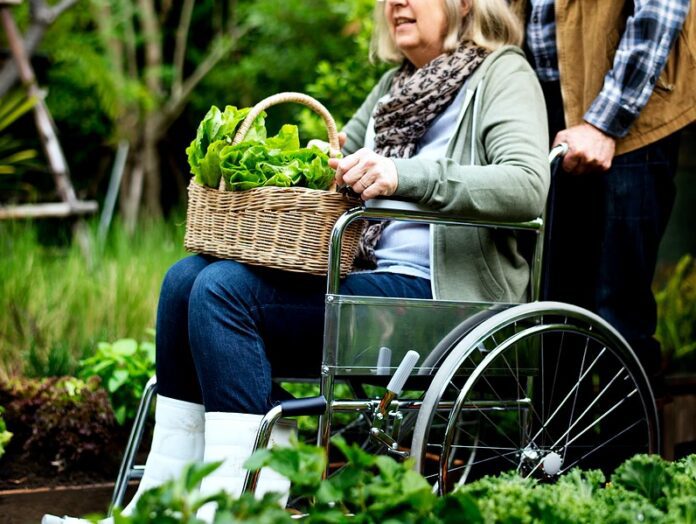A diet rich in colorful fruits and vegetables may help to ward off memory loss, according to a new analysis that looked at the foods eaten by tens of thousands of men and women over many years. Strawberries, orange juice, apples, grapefruits, pears, peppers, celery, blueberries, and many more — a rainbow colored cornucopia of fruits and vegetables — were shown to boost brain health. And it didn’t take much. As little as a half a serving a day of such foods may lower the risk of cognitive decline by up to 20 percent.
These colorful foods are all high in naturally occurring compounds called flavonoids found in plant-based foods. Flavonoids are powerful antioxidants, which help to neutralize highly reactive oxygen compounds that can damage cells throughout the body, including in the brain. Flavonoids also have inflammation-fighting effects, and increasingly doctors recognize that inflammation plays a critical role in many chronic conditions of age, including Alzheimer’s disease. The findings were published in Neurology, the medical journal of the American Academy of Neurology.

“The people in our study who did the best over time ate an average of at least half a serving per day of foods like orange juice, oranges, peppers, celery, grapefruits, grapefruit juice, apples and pears,” said that study’s lead author, Dr. Walter Willett, of Harvard University. “While it is possible other phytochemicals are at work here, a colorful diet rich in flavonoids — and specifically flavones and anthocyanins — seems to be a good bet for promoting long-term brain health.”
“And it’s never too late to start,” Dr. Willett added. “We saw those protective relationships whether people were consuming the flavonoids in their diet 20 years ago, or if they started incorporating them more recently,” in the last five to 10 years. “There is mounting evidence suggesting flavonoids are powerhouses when it comes to preventing your thinking skills from declining as you get older, and that making simple changes to your diet could help prevent cognitive decline.”
The study showed only an association between foods consumed and cannot prove cause and effect. Dietary studies are hard to control, and people who eat a “healthy” diet also tend to engage in healthful activities like regular exercise. But the findings add to a growing body of evidence that what we eat, such as fresh fruits and veggies full of antioxidants, can affect our brain health. Other studies have shown that such foods may also help to combat heart disease, cancer and other diseases of aging.

For the current study, researchers looked at 27,842 men and 49,493 women who were enrolled in two longstanding health surveys. On average, they were in their early 50s at the study’s start.
Over the next 20 years, participants filled out detailed questionnaires about the specific foods they ate and how often they ate them. The researchers assessed how many flavonoids they ate in a typical week and grouped them from high to low.
Those in the highest 20 percent of flavonoid intake ate, on average, about 600 milligrams a day. A serving of strawberries, for example, contain about 180 milligrams of flavonoids, while an apple has about 113 milligrams. Those in the lowest flavonoid group ate 150 milligrams or less a day.
During the study period, participants also rated their own cognitive health by answering a series of questions that included:
- Do you have more trouble than usual remembering recent events?
- Do you have more trouble than usual remembering a short list of items, such as a shopping list?
- Do you have trouble remembering things from one second to the next?
- Do you have any difficulty in understanding things or following spoken instructions?
- Do you have more trouble than usual following a group conversation or a plot in a TV program due to your memory?
- Do you have trouble finding your way around familiar streets?
- Do you have more trouble than usual remembering recent events?
The questions are designed to assess early memory problems that people may notice and feel that something is “off,” but that aren’t so serious that they would be detected on a formal Alzheimer’s screening exam.

The researchers found that people who ate a diet rich in flavonoids were 20 percent less likely to report that they were having memory problems.
Certain types of flavonoids were particularly protective. Flavones, found in some spices and yellow and orange fruits and vegetables like peppers, had the strongest protective qualities, and were associated with a 38 percent reduction in risk of cognitive decline, equivalent to being about three to four years younger in “brain age,” the researchers estimate. Anthocyanins, found in blueberries, blackberries and cherries, were associated with a 24 percent reduced risk of cognitive decline.
Other good sources of flavonoids include onions, wine and dark chocolate. As always, it is highly preferable to rely on non-processed natural food sources, which contain an abundance of different health-promoting compounds, rather than less natural sources such as supplements, which may come with pernicious side effects or contain super high doses of specific wanted or unwanted compounds.
Whatever your age, and especially for those over 50 who are at higher risk of Alzheimer’s disease, including a colorful array of fruits and vegetables in your diet may be a wise investment in brain health. And it may not take much: a few servings of berries a week, a glass of orange juice, maybe an apple or two.

This information is by ALZinfo.org, The Alzheimer’s Information Site. This article was originally published by The Fisher Center for Alzheimer’s Research Foundation.






